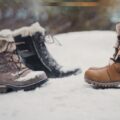Hiking is a fantastic way to immerse yourself in nature while getting a great workout. Whether you are a seasoned trekker or a novice hiker, having the right gear is essential for a safe and enjoyable experience. In this guide, we will explore the essential gear you need for your next hiking adventure.
Choosing the Right Footwear
One of the most critical pieces of gear for any hiker is a good pair of hiking boots or shoes. The right footwear provides the necessary support and traction to navigate various terrains safely. Look for boots that offer:
- Good ankle support
- Durable and waterproof materials
- A comfortable fit with room for socks
Don’t forget to break in your new boots before hitting the trails to avoid blisters and discomfort.
Backpacks and Hydration Packs
A reliable backpack is crucial for carrying all your essentials. When choosing a backpack, consider the following:
- Size and capacity to fit your needs
- Comfortable straps and back padding
- Multiple compartments for organization
- Hydration compatibility
Hydration packs are also a great option, especially for longer hikes, as they allow you to drink water conveniently without stopping.
Clothing Considerations
Wearing the right clothing can make a significant difference in your hiking experience. Opt for layers to regulate your body temperature and choose moisture-wicking materials to stay dry. Some essential clothing items include:
- Base layers (thermal shirts and leggings)
- Mid layers (fleece or insulated jackets)
- Outer layers (waterproof and windproof jackets)
- Hiking pants or shorts
- Socks and gloves
Remember to bring a hat and sunglasses to protect yourself from the sun.
Navigation and Safety Gear
Staying on track and being safe are paramount when hiking. Essential navigation and safety items include:
- A map and compass or a GPS device
- A first aid kit
- Multi-tool or knife
- Headlamp or flashlight with extra batteries
- Emergency shelter
It’s also a good idea to inform someone about your hiking plans and expected return time.
Food and Snacks
Keeping your energy levels up during a hike is important. Pack lightweight, high-energy snacks such as:
- Trail mix
- Energy bars
- Dried fruits
- Nuts and seeds
For longer hikes, consider bringing compact meals that are easy to prepare, such as dehydrated meals.
Additional Accessories
There are a few more accessories that can enhance your hiking experience. Consider bringing:
- Trekking poles for added stability
- Binoculars for wildlife viewing
- Camera to capture the scenery
- Portable charger for your electronics
These items can add convenience and enjoyment to your hike.
FAQ
1. What should I do if my hiking boots cause blisters?
Blisters can be prevented by ensuring your boots fit well and are properly broken in. Wearing moisture-wicking socks and using blister prevention products like moleskin can also help.
2. How much water should I bring on a hike?
A good rule of thumb is to carry at least half a liter of water per hour of hiking. Adjust this amount based on the temperature and difficulty of the trail.
3. What should I include in my first aid kit?
Your first aid kit should include bandages, antiseptic wipes, adhesive tape, pain relievers, and any personal medications you may need.
4. How can I stay safe while hiking alone?
Always inform someone of your plans, carry a map and compass or GPS, and be aware of your surroundings. Stick to well-marked trails and avoid hiking after dark.
5. Are there any eco-friendly practices I should follow while hiking?
Yes, follow the Leave No Trace principles, which include packing out all trash, staying on established trails, and respecting wildlife.









